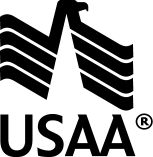USAA is proud to have had a regional presence in North Phoenix since 2004. Over the years, we have grown to more than 1 million square feet of office space and employ more than 4400 residents around Greater Phoenix. With approximately 600,000 veterans and 40,000 active-duty service members and their families calling Arizona home, we know there’s a need to support and protect our military members here in Arizona. Identity theft and fraud are becoming a massive problem for them. Read on to learn how USAA is helping them avoid becoming a victim.
Fraud targeting service members can lurk around any corner, from identify theft and phishing to bad car loans and card popping.
Just last year, Americans lost $3.3 billion to fraud and scams. Military families are particularly at risk. In 2019, military families filed 58,000 scam and fraud complaints and 28,413 reports of identity theft. These scams on service members and veterans are on the rise as cybercriminals get smarter and use savvier tricks to swindle their way into your bank account.
“Today’s scammers are masters of manipulation,” says Stacey Nash, head of Fraud and Central Operations at USAA. “They know the military terminology; they know that you’re receiving a steady paycheck; they know what you’re posting online.”
Nash adds that many new service members seem to be an easy target because they’re receiving a paycheck for the first time.
“They may not be used to a checking account or how debit cards work. Plus, they’re moving a lot, changing their address, and getting used to new processes. Fraudsters use this learning curve as an opportunity to come in and take advantage.”
From identify theft and phishing to bad car loans and card popping, fraud targeting service members seems to be lurking around every corner. Here are ten steps to take to help you not become a victim:
- Monitor for identity theft or fraudulent charges by regularly checking your financial statements, shredding sensitive documents, and creating strong passwords.
- Be wary of new phone numbers. Keep in mind most reputable companies like government agencies and financial institutions won’t call and ask you to provide personal details.
- Verify a caller’s legitimacy by asking for the number to their organization’s main switchboard. Once you’ve done your research, you can call them back.
- Never click a link in a text or email from an unverified recipient.
- Look for clues within the email, like logos or font types that are slightly off. Hover over the sender’s name to see if it’s from a bogus email account with random numbers and letters.
- Visit your installation’s legal office if you’re worried your home may be facing a foreclosure. Military personnel have special protections from foreclosure under the Servicemembers Civil Relief Act (SCRA).
- Register your phone number on the free National Do Not Call Registry to reduce the number of unsolicited calls you receive. Visit donotcall.gov or call 888-382-1222 from the phone number you want to register.
- File fraud reports online at ReportFraud.ftc.gov, forward suspicious emails to reportphishing@apwg.org, and forward suspicious texts to SPAM or 7726 on your cell phone.
- If you’ve received a suspicious USAA email, text, or phone call, or have visited a suspicious website, immediately call 800-531-USAA (8722) or email abuse@usaa.com.
- Share these tips with friends and family, especially when you’re deployed and others handle your finances in your absence.
For assistance and more tips for scams on service members or military veteran scams, visit the USAA Security Center.


